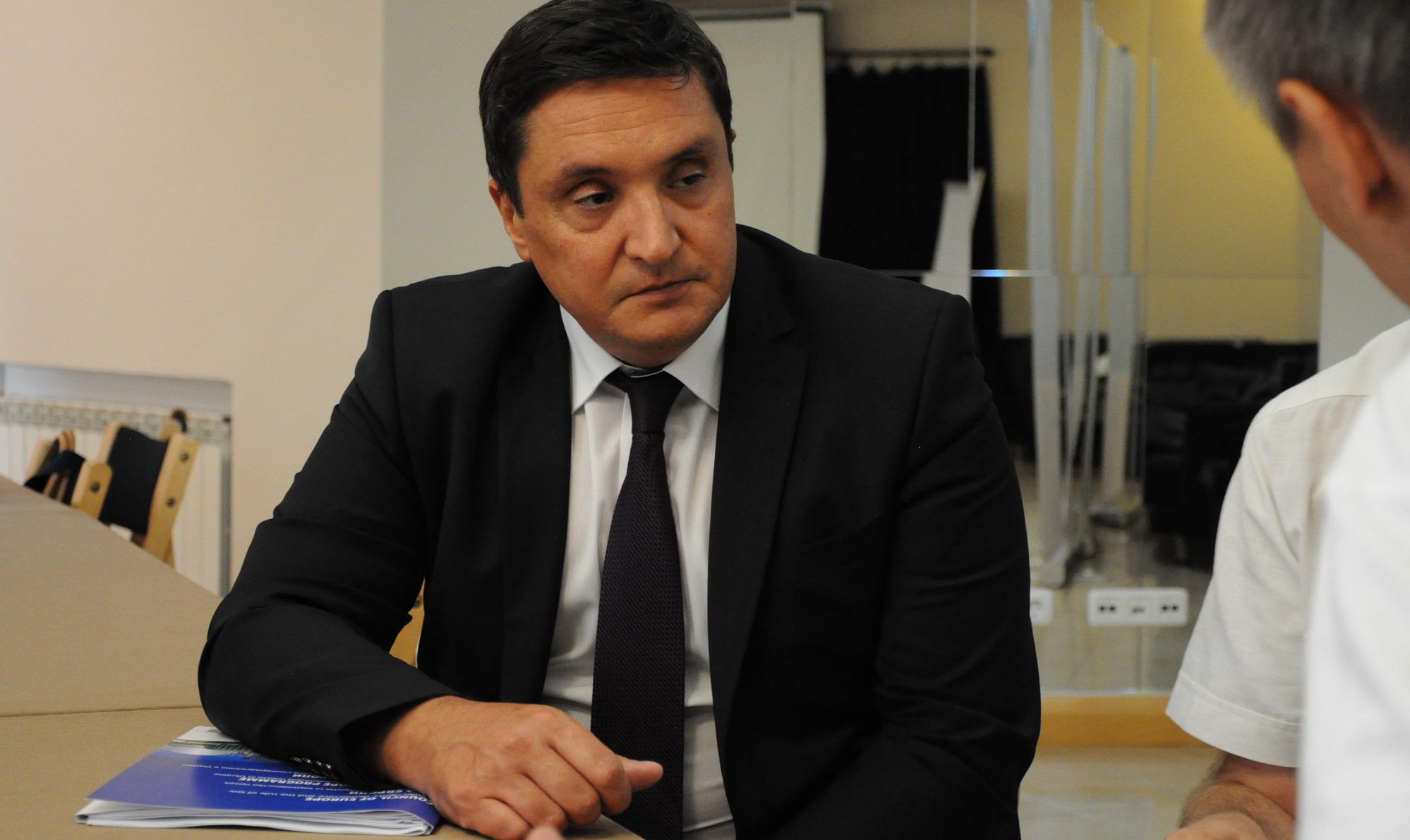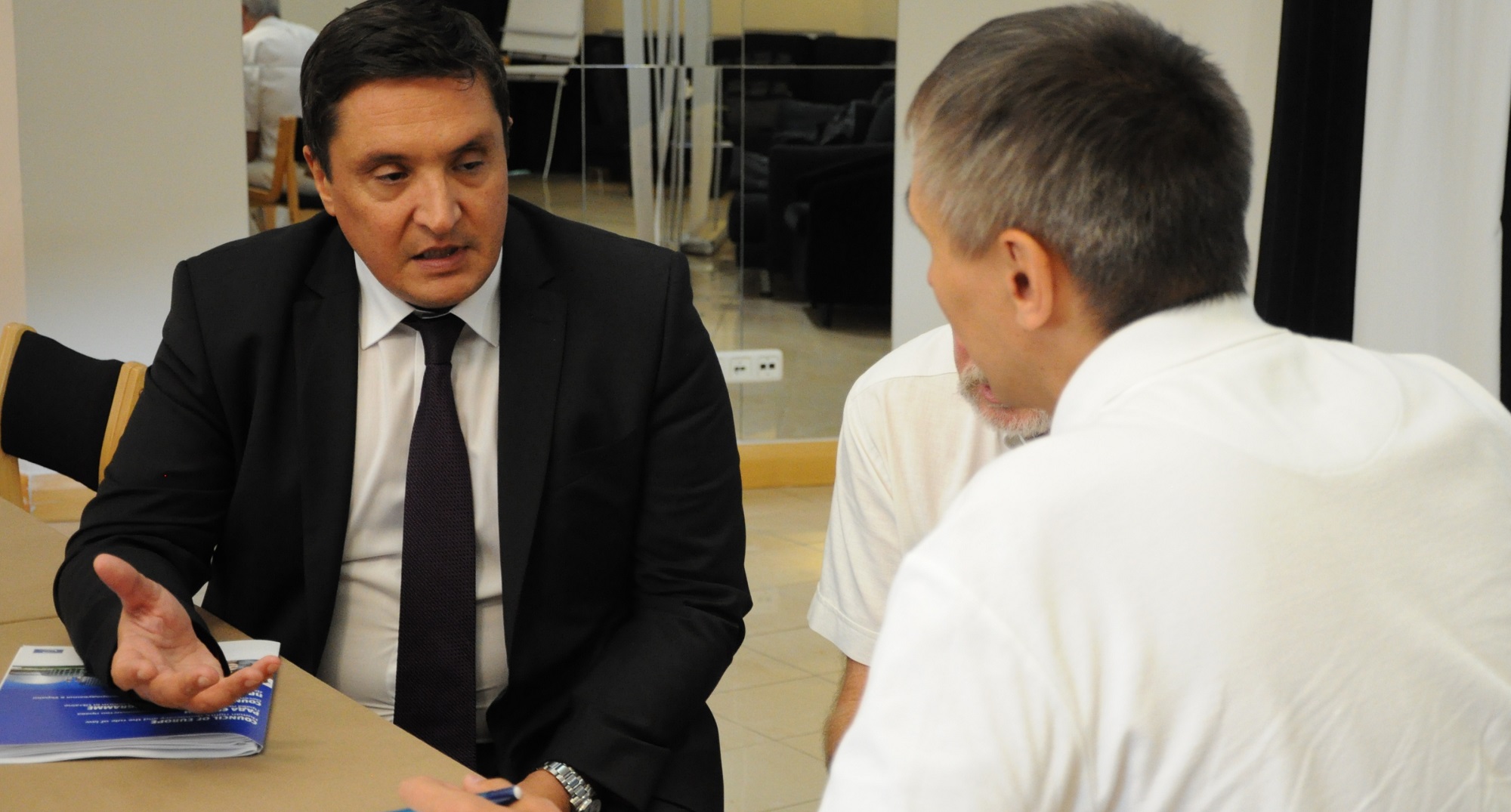How will “Strasbourg compromise” change Ukraine?
Daniel Popescu, Head of the Democratic Governance Department of the General Secretariat of the Council of Europe, is convinced that Ukraine needs a mechanism for state supervision over the lawfulness of decisions of local self-government bodies and will have it soon.
By Dmytro Synyak 
Last week, the experts presented a draft law on state supervision over local self-government’s decisions. How would you characterise it? Is it better than the previous one?
- Yes, it is much better. This is an extremely important draft law for decentralisation, because it concerns an extremely sensitive topic of supervision over the lawfulness of local self-government acts. Nowhere in Europe decentralisation of power was implemented without the introduction of a system of supervision over the legitimacy of decisions of local authorities. From the very beginning, the Task Force included all stakeholders. Now, all parties are submitting their proposals for improving the final text, but I am sure that we will find a compromise.
You have opposed the fact that the body that oversees the lawfulness of local self-government’s acts could, in emergency situations, make a decision instead of village, settlement and city councils. Who should make such a decision in case of inactivity of local authorities?
- All European countries have the mechanisms of supervision over the acts of local self-government. All that we want to say is that Ukraine should have such a mechanism as well. The draft law, considered by us, envisages that the lawfulness of local self-government’s acts will be supervised by a group of professional lawyers deprived of the right to make any other decisions. They only determine whether local self-government decisions are in line with the law.
Apparently, for a peaceful country such a path is correct. But there is the war in Ukraine. In 2014, the Verkhovna Rada of the Autonomous Republic of Crimea, as well as Donetsk and Luhansk Oblast Councils made decisions that led to terrible consequences. We probably have to create a system that would allow to respond faster to such decision and terminate them?
- I understand it very well. It is necessary to make it possible for the state to timely declare an emergency state in certain oblasts, that is, to intervene in the work of local councils, when it comes to the integrity of the country. The mechanism of such an intervention should be determined by a completely different draft law, related to what we are discussing now.
You are well acquainted with the Ukrainian realities, therefore, you know that the complexity of this draft law also arises because the heads of hromadas, especially those of large cities, who received considerable funds and powers as a result of the reform, have no interest in state supervision. How to get out of this deadlock?
- You know, I think we've already got out of the deadlock. If there is a single supervisory authority to assess the lawfulness of all local self-government’s acts, this will automatically reduce the number of inspections by specialised government bodies. Our discussion shows that the attitude of former opponents to this draft law is changing.
How much sincere is this stance in your opinion?
- I think it's quite sincere. At least, we have a starting point, called the “Strasbourg compromise” by all the parties. And, in fact, it is reduced to the creation of a small group of lawyers at the oblast level, who will deal exclusively with the supervision over local authorities’ compliance with the rule of law.
Local self-government bodies are still concerned about the fact that the central government will be able to put pressure on them through the surveillance mechanism...
- There may always be abuse, even if the law is perfect. And there are many examples of it. But it is possible and necessary to limit the risk of such abuses. How can it be done? First of all, by ensuring that the supervisory bodies are small, consist of professional lawyers and have no other authority, except, in fact, for the supervision over the observance of the rule of law.
The authors of the draft law propose creating an advisory council under the control body. Why is it needed?
- This is, by the way, an innovative element. First of all, it is needed for feedback. Such an advisory council will be able to raise questions, make recommendations on certain HR decisions in the supervisory body, and make requests to local authorities for particular information. In case of abuse by lawyers, checking the lawfulness of local self-government’s acts, the advisory council will be able to conduct their own investigations, ask questions, hold press conferences, etc. The council will also be able to appeal to the government to take immediate action. It is an advisory body, but it increases the transparency of the whole system.
The current proposal to solve the “supervision problem” is already the third one. Is the way to introduce such systems in Europe so thorny as well?
- Initially, the supervision over lawfulness in European countries was very tight, but then it began to mitigate. Now in Europe there are only two countries with no centralised supervision system, similar to the one we are discussing today – Great Britain and Finland. But their systems are much more vulnerable to various abuses. Another point: even in countries, where there are systems for supervision over the lawfulness of local self-government’s decisions, there are sometimes scandals related to the law violation.
Is the Ukrainian model based on the example of a European country?
- I do not know any country, where the system of supervision over the local authorities’ compliance with the law would be identical. Yes, they can be built on some general principle, but the details are always different. In Ukraine, we are trying to introduce a model that existed in France until 1982. According to many experts, it is better than the current one. The only innovation is the advisory council, which will reduce the possibility of abuse with political motives. This system will be much better than in other countries.
The full version is available in Ukrainian – please click HERE
21 November 2024
Громади Хмельниччини долучилися до обговорення реформи старшої школи
Громади Хмельниччини долучилися до обговорення...
15 листопада в Хмельницькому відбулося громадське обговорення впровадження реформи профільної середньої освіти. Захід...
21 November 2024
Програма Polaris провела інформаційну сесію для громад Житомирщини
Програма Polaris провела інформаційну сесію для...
20 листопада у Житомирі відбулася інформаційна сесія Програми Polaris «Підтримка багаторівневого врядування в...
21 November 2024
Стратегія безбар’єрності: експерт розповів про цифрову доступність
Стратегія безбар’єрності: експерт розповів про...
Цифрова безбарʼєрність – один із шести ключових напрямків розвитку, визначених у Національній стратегії зі створення...
20 November 2024
Mayors’ Congress in Paris: at least 7 new partnerships are being established
Mayors’ Congress in Paris: at least 7 new...
Just imagine the scale of the Mayors’ Congress in Paris for local government leaders: 1,200 French mayors are...

